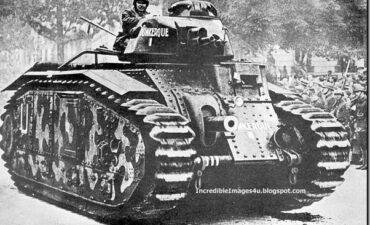Why did Napoleon’s military strategy and tactics not work at Waterloo? Napoleon’s military strategy and tactics at the Battle of Waterloo were influenced by several factors that ultimately contributed to his defeat. Here are some key reasons why his approach did not succeed:
Misjudgment of the Allied Forces:
One of Napoleon’s crucial mistakes was underestimating the strength and resilience of the Allied forces. He failed to recognize the improved coordination and leadership among his opponents, including the Duke of Wellington and Gerhard Leberecht von Blucher. This led to an incorrect assessment of the enemy’s capabilities and a flawed strategy.
Delayed Attack:
Napoleon’s initial plan was to engage and defeat the Allied forces in a piecemeal manner before their armies could unite. However, due to a series of miscommunications and tactical errors, the French attack was significantly delayed. This allowed the Allied forces to regroup and reinforce their positions, nullifying Napoleon’s intended advantage.
Failure to Capture the Crossroads:
Another critical factor was Napoleon’s inability to seize the vital crossroads of La Belle Alliance, which was a key strategic objective. This failure hindered his ability to control the battlefield and disrupted his lines of communication and supply, ultimately weakening the French position.
Wellington’s Defensive Strategy:
The Duke of Wellington adopted a strong defensive position, utilizing the ridge at Mont St. Jean to his advantage. This defensive stance, combined with disciplined infantry squares and effective use of artillery, made it difficult for the French cavalry to break through the Allied lines. Wellington’s strategy and the tenacity of his troops played a crucial role in repelling Napoleon’s assaults.
Prussian Reinforcements:
While the Battle of Waterloo was underway, Blucher’s Prussian army was advancing to support the Allied forces. The arrival of the Prussians on the battlefield disrupted Napoleon’s plans and placed him in a precarious situation. The combined strength of the Anglo-Allied and Prussian forces turned the tide against Napoleon, leaving him outnumbered and surrounded.
Exhaustion and Strategic Mistakes:
Napoleon’s forces were already fatigued from their previous campaigns, including the retreat from Russia and the battles in Germany. This exhaustion, combined with Napoleon’s own tactical errors and misjudgments during the battle, further weakened the French position and hindered their ability to effectively counter the Allied forces
.
It’s important to note that Waterloo was not solely a result of Napoleon’s shortcomings. The battle was a complex engagement influenced by a variety of factors, and the Allied forces also played a significant role in their successful defense. Nevertheless, the above factors highlight some of the key reasons why Napoleon’s military strategy and tactics did not work as intended at Waterloo.








